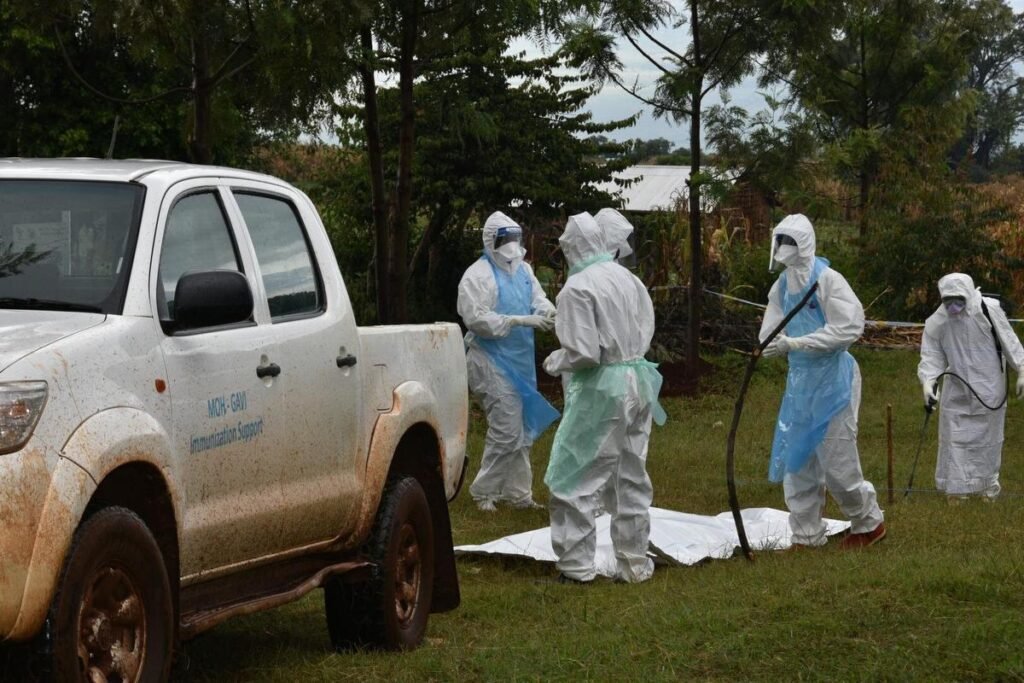US official advice against non-essential travel to Rwanda in light of the outbreak of the deadly Marburg virus is “not fair”, Africa’s top health official Jean Kaseya has said.
The head of the Africa Centres for Disease Control and Prevention (Africa CDC) added that it was “not the treatment Rwanda and Africa deserve”.
In just two weeks, Rwanda has recorded 13 deaths from the disease – most of them among healthcare workers, according to a statement from the country’s health minister.
But the outbreak is under control, the authorities say.
Nevertheless, those on the front line of dealing with its consequences remain nervous.
“What scares you the most [is] when you see people of the same profession dying,” said Maria, not her real name, an intensive-care nurse at a hospital in the Rwandan capital, Kigali.
Maria talked to the BBC on condition of anonymity as she was concerned if she spoke out publicly, she would lose her job.
“I can’t stop telling myself that I might be the next, that maybe I am positive but without symptoms yet,” said the 46-year-old nurse and mother.
She told the BBC that several of her colleagues were sick, being treated in isolation, and that more than one had already died as a result of the virus. She described the overwhelming strain faced by staff in the facility every day.
On average half of patients infected with the Marburg virus will die, according to the World Health Organization (WHO). Fruit bats host the virus, and it spreads from human to human through contact with infected bodily fluids such as sweat, urine and blood.






